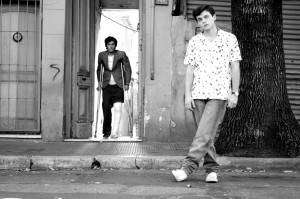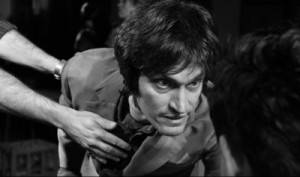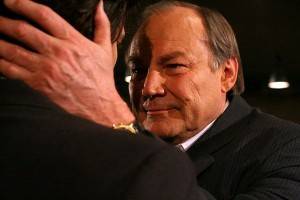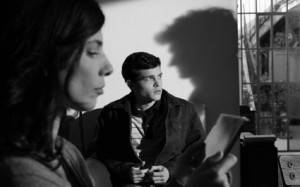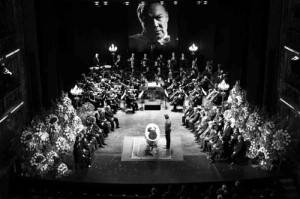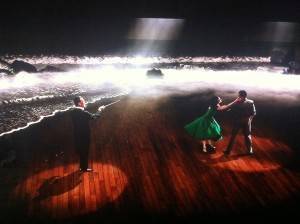Tetro
I was given Tetro on Blu-ray as a Christmas present but I had delayed watching it as with Francis Ford Coppola’s previous release Youth Without Youth I was actually expecting to be very much disappointed by it, luckily this was not to be the case and its clearly his best entirely original screenplay since The Conversation and his most personal film since Apocalypse Now, I engaged with it so much that I wished it had another 30 minutes running time.
The premise for Tetro is actually very slight Bennie a waiter on a cruise liner, decides to look up his long lost older brother Angelo whilst on shore leave in Buenos Aires. He discovers him living with his common law wife Miranda (Maribel Verdú) only now he calls himself ‘Tetro’ and claims he no longer wants anything to do with his real family. Angelo and Bennie are the sons of a celebrated concert conductor although they had different mothers; Angelo’s was an opera singer and died in a car crash whilst he was at the wheel and that, along with another incident between him and his father over a mutual lover, has left him mentally and emotionally scarred.
What struck me immediately about Tetro is how good it looks, I had my doubts as I knew it was shot totally digitally but Mihai Malaimare Junior’s 1080p/24 source HDCAM photography is stunning, shot predominately in monochrome using a 2.35:1 aspect ratio but electing to use a smaller ratio for 1960s home movie style, washed out colour flashbacks and full “Technicolor” for the Powell and Pressburger inspired fantasy ballet sequences. There is obviously no loss in quality when transferring this to Blu-ray and the film’s visuals are demonstration material and further proof that there will be life after celluloid in this medium.
Newcomer Alden Ehrenreich is a revelation as Bennie, there aren’t many young actors who could hold their own in their screen debut opposite the force of nature that is Vincent Gallo who embodies the damaged Tetro with equal measures of egotistical charm and severe self-loathing; the acting across the board is faultless as with most Coppola productions he insists on a large amount of read-through, rehearsal and improvisational time before shooting and it always pays off in the camera.
Bennie cannot understand why Tetro appears so cold towards him, especially after leaving him a note claiming that he would return to collect him from New York at some point. Both brothers have aspirations to become writers but Tetro along with his past has abandoned his great work, an unfinished play about their father, but when Bennie discovers it in a dusty suitcase he sees not only an opportunity to finish the story but by staging it at the local cafe theatre where Tetro works the lights he can force him to confront his demons.
In the few scenes where he appears Klaus Maria Brandauer brings great presence to the dual role of the elder Tetrocini brothers and Coppola reveals just enough for us to understand the dynamics between the rival siblings; as the maestro Carlo he is effortlessly charismatic, his fame and fortune seducing his son Angelo’s girlfriend, and as Alfredo you see an older man forced to live in the shadow of his younger brother’s success. These themes are echoed in the future generation of Tetrocini brothers with Angelo envying Bennie’s acclaim when his finished version of his play entitled “Wander Lust” is shortlisted for the top prize at the Patagonia Festival gaining the approval of the mysterious critic “Alone” played by Pedro Almodóvar’s muse Carmen Maura; Tetro had once been her protégée but they had a falling out over artistic differences.
I shan’t spoil the film’s climatic twist which occurs in the extended Patagonia sequence which many critics have dismissed out of hand as self-indulgent without one I’ve read bothering to comment that stylistically it’s very obviously an homage to Federico Fellini and no doubt aware of its unreal quality. I want to say that Tetro could well be the best film of the decade but I know that I’d be stretching it, however it is certainly Francis Ford Coppola’s best film in a very long time and as such it should be regarded as he is one of the true artists working in cinema today.

